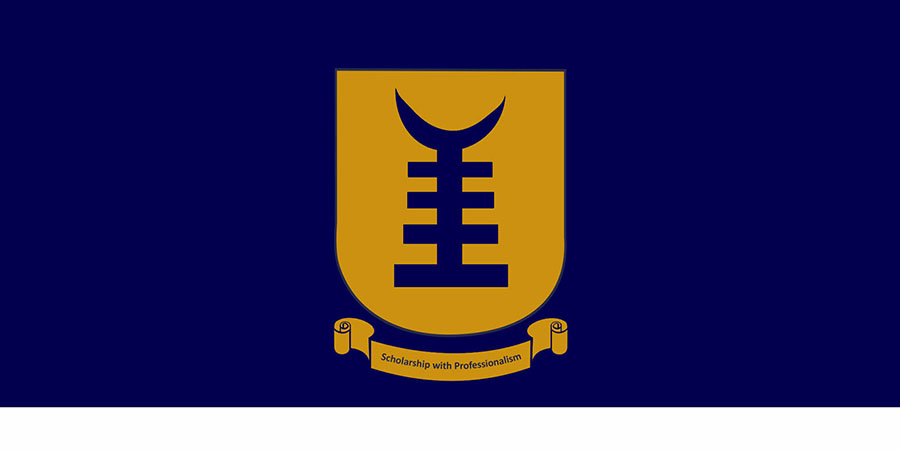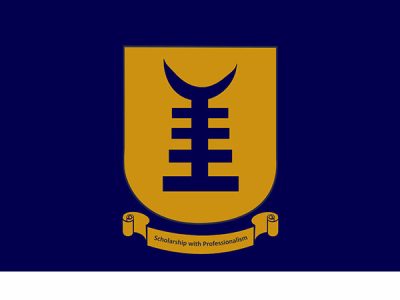Welcome Message from the Coordinator
Welcome to the Master of Philosophy (MPhil) in Leadership programme offered by the School of Graduate Studies at the University of Professional Studies, Accra. We hope your academic experience in this programme will be an exciting and enriching one.
The MPhil Leadership is a two-year rigorous programme designed to provide students with the required skills and knowledge to conduct independent research in the field of Leadership.
This programme emphasises independent research work. Students spend the entire second year of the programme writing an MPhil thesis under supervision of our experienced faculty members.
Coordinator’s Profile
Ms. Sangmorkuor Tetteh is a Lecturer with the Department of Business Administration at the Faculty of Management Studies. Prior to her appointment, she served as a Graduate Assistant at the UPSA School of Graduate Studies. She teaches courses such as Introduction to Management, Principles of Leadership and Entrepreneurship Development.
Her research interests are Gender, Leadership and Entrepreneurship. She is also a Certified Image Consultant.
Miss Tetteh has a Bachelor of Arts in Political Science and Sociology from the University of Ghana. He also holds an MPhil in Leadership from the University of Professional Studies, Accra, where she graduated as the best student for the programme in the year 2020. She is currently pursuing a PhD in Management and Innovation at the Catholic University of the Sacred Heart in Italy.
She serves as the Coordinator for the MSc/MPhil Leadership programme.
Office Location:
Coordinators Office (Room 4)
2nd Floor, Idris Egala Building
Email: [email protected]
Programme Aims and Objectives
The overall aim of this programme is to equip participants with knowledge, skills, and awareness that will enable them to transform their organisations. Students will be able to provide their organisations with team-based leadership through the creation and communication of vision and values aimed at achieving world-class standards of performance. Key to achieving the aims of this programme is developing personal assessments, professional skills, and knowledge in the areas of leadership strategy and organisational development through an intensive coaching relationship of participants.
The objectives of the MPhil in Leadership programme are to:
- Equip students with skills to develop a framework for understanding leadership in the context of culture, customs, and communication.
- Create a platform to develop the cognitive and behavioral abilities of students to think ethically, creatively, and innovatively in leadership dilemmas and issues.
- Equip students with an understanding of the global economy and the global political arena, and to contribute to value creation with their spheres of contact.
- Discuss leadership skills, models, and theories required by cosmopolitan leaders to be successful in the 21st century.
- Provide enabling environments for students to build up their social capital with colleagues by sharing their thoughts and experiences on various contemporary issues and leadership challenges.
- Equip students with the appropriate methodologies for teaching and researching to add value to organisations with their presence.
Programme Outcomes:
At the end of this programme, students will:
- Demonstrate personal development through an understanding of the concept and application of transformational leadership.
- Demonstrate strong cross-cultural communication, negotiation, leadership and team-building skills.
- Describe the intended and unintended potential cross-sectoral and international ripple effects of an organisation’s policies and decisions.
- Demonstrate a working literacy of global issues and utilise this knowledge for critical thinking, thoughtful analysis, and global-conscious decision-making.
- Collaborate effectively with their professional counterparts in other countries.
- Demonstrate the ability to identify and implement the key factors underlying world class leadership practice and performance.
- Develop a framework for conducting research and teaching at the tertiary level of education.
Structure of the Programme
YEAR ONE (1): SEMESTER ONE
| CODE | COURSE TITLE | DESCRIPTION | CREDIT HOURS |
| MPGL 601 | Fundamentals of Leadership | This course provides an opportunity for participants to focus on leadership from both theoretical and practical perspectives. The course employs theoretical concepts and models, coupled with case studies based on the experiences of leaders within the profession to understand how to develop leadership potential in oneself and others. It focuses on leadership concepts and definitions, the role of leaders, theories and models of leadership, and decision-making models. Other topics covered in this course include understanding ourselves and others, proactivity – getting off the nail, the multiple faces of leadership, the difference between leadership and management, team management, practical exercise in leadership and teamwork, personal and group action plans, and the difference between groups and team. | 3 |
| MPGL 605 | Leading People and Managing Organizations | This course builds on emerging theories of emotional intelligence and self-leadership as they are applied in today’s fluid, international organisational contexts. Students will explore strategies for leading successful change initiative, and managing relationships with members, contractors, and volunteers. It further guides students to new positive leadership styles, embracing emotion and human nature, as an alternative to traditional leadership and teaching them to discover the potential of their workforce. This Course will be taught in both online lecture and face-to-face discussion format. In addition to lectures, the class will also involve group discussions, interactive activities, review of relevant literature, and leadership seminars facilitated by participants. | 3 |
| MCPC 605 | Management Information System | This course examines information systems and how such systems are selected, designed and managed to provide information needed to run organisations successfully, as well as various information technologies that support business decision-making. The course further stresses on the competitive advantage of using IT as a tool to achieve desired returns on investment. It further emphasises the role of information systems to increase productivity, improve the quality of products and services, and to ensure overall effectiveness of organisational operations. Appropriate application software is used to analyse cases to get hands-on experience. | 3 |
| MPGL 607 | Research Methods I (Qualitative Design) | The purpose of this course is to introduce students to the field of qualitative research and prepare them with the skills, techniques, and knowledge necessary to undertake independent research using this methodology. This course will provide an opportunity for participants to improve their understanding of research through critical exploration of research language, ethics, and approaches. The course introduces the language of research, ethical principles and challenges, and the elements of the research process within qualitative and mixed methods approaches. Participants will use these theoretical underpinnings to begin to critically review literature relevant to their field or interests and determine how research findings are useful in informing their understanding of their environment. | 3 |
| MPGL 619 | Innovation and Change Management | The aim of the course is to explore the concepts of creativity, innovation and change within organisations and how to employ leadership skills to facilitate the process of leading innovation and change. The course covers theory and practice in relation to theories and processes of innovation and change. It provides students with an analytical understanding of a variety of issues related to knowledge management, innovation, and strategy within the context of the modern trends in technology. The course focuses on the management and development of strategy to guide the innovative processes and creates an organisational culture that fosters and supports change and innovation. Furthermore, students will acquire knowledge of the best practices to develop theoretical and practical approaches to strategy and managing innovation given the unique context of organisations such as culture, the employee’s strengths/weaknesses among others. | 3 |
| TOTAL | 15 |
YEAR ONE (1): SEMESTER TWO
| CODE | COURSE TITLE | DESCRIPTION | CREDIT HOURS |
| MPGL 606 | Research Method II (Quantitative design) | This course covers quantitative techniques in business decision-making. It provides students with a fundamental knowledge of statistical theory and applies the theory to decision-making situations. This course focuses on application of quantitative methods using examples from accounting, management information systems, finance, human resources, production, services, economics marketing through statistical measurements, regression analysis, statistical techniques for sampling, and hypothesis testing. In addition, the course equips students with essential strategies of undertaking research activities with focus on problem identification and choice of research topic, statement of relevant research objectives, formulation of research hypotheses, research design, questionnaire, interview programming, collection of data, organisation and processing of data, presentation and interpretation of estimated data, and report writing. The course further assists students on how to use computer systems and spreadsheets as tools for performing statistical calculations, creating tables, and generating graphical representations of information. | 3 |
| MPGL 604 | Strategic Leadership | The course describes the various levels of leadership and examines the requirements of strategic leadership. It further examines the psychological perspectives of the strategic leadership thinking process and discusses global strategy theory. It attempts to relate the various levels of leadership to each other and focuses on strategic leadership theory, strategic thinking, creation and delivery of value, and the ethical underpinnings and dilemmas of strategic leadership with real life examples. The course integrates skills and capacities in strategy work (craft), strategic thinking (scope of thought), and behavioral elements relevant to moving people (Leadership Quality). The intention is to provide knowledge, insight, and skill in a multi-textured approach both in context and method. | 3 |
| MPGL 608 | Stakeholder Relations Management | This course focuses on the social and political environment of business and explores the role of both society and the corporation in today’s business world and society. The course equips students with the principle and theories of stakeholder management and how organisations maintain relationships with several groups that are affected by their decisions. It gives students an understanding of the strategic purposes of the firm as both an economic and social entity within society. Through this course, students will better understand stakeholders, develop a positive working relationship based on cooperation and mutual respect, and maximise long-term goals through lectures, student presentations. | 3 |
| MPGL 616 | Foundations of Social Science Research | The objective of this course is to encourage students to reflect critically on how to conduct research in the social sciences. Particular attention is paid to understanding various ways of thinking about the nature of research. The benefits and problems of various research approaches are also explored. Sample topics include the following: ontology of the social world; objectivity and values; reductionism, individualism, and holism; explanation, prediction and laws; interpretation and meaning; and functional explanation. | 3 |
| MPGL 632 | Negotiations and Conflict Resolution | This course aims at providing a systematic introduction of concepts, theories, and practices, with a focus on equipping students with toolkits for handling conflict and negotiation. The course content is composed of two intimately related parts. The beginning part introduces the nature and types of conflict, mechanism of conflict, escalation and de-escalation, and conflict resolution styles. Students discuss the characteristics of interest-based negotiation and negotiation strategies. Specifically, students learn strategies to avoid various cognitive biases in conflict situations and negotiation, the building blocks of negotiation, the differences of distributive versus value-creating negotiation approaches, and the strategies of achieving integrative outcomes. | 3 |
| TOTAL | 15 |
YEAR TWO (2): SEMESTER ONE
| CODE | COURSE TITLE | DESCRIPTION | CREDIT HOURS |
| MPGL 602 | Financial Management for Leaders | The main goal of this course is to develop students’ foundation of financial management and financial reporting concepts. The course requires an understanding of basic accounting and financial management concepts with emphasis on practical applications and problem-solving techniques. The primary objective is to provide the student with the tools to understand and solve the basic financial problems confronting contemporary business. The course covers basic accounting systems and reports, agency theory, time value of money, financial planning (budgeting), management of cash flows, valuation of assets, capital budgeting techniques, risk and return, sources of financing, capital structure theory, and dividend policy assessment. The emphasis is on financial statement analysis, time value of money, cash budget, and finance. | 3 |
| MPGL 609 | Research Methods in Behavioural Sciences | This course is an advanced Research Methods course in which students will be required to apply much of their existing knowledge in social sciences to the planning, execution, and report writing. The course focuses on the theoretical underpinnings of research methodology, as well as practical aspects of research using quantitative and qualitative methods, including formulating research questions, concept formation and measurement, and sampling. Relevant technical publications will be used extensively in class discussions. The course is delivered through lectures, discussion, group work and online activities. | 3 |
| MPGL 620 | Dissertation | MPhil in Leadership students shall be required to undertake a research study on a chosen topic in leadership and write out a thesis. The dissertation would take one academic year for a total of 30 credit hours. The MPhil thesis allows students to demonstrate that they have developed the necessary analytic and synthetic skills needed to meet the requirements of philosophical research at a higher level, and that they possess an intellectual maturity sufficient to proceed to doctoral study. This means the thesis must go beyond merely summarising, quoting and paraphrasing other authors and must be an original contribution to the knowledge in the field and a self-standing work. In the MPhil thesis, students are required to :
a) demonstrate mastery in research skills b) demonstrate specialist knowledge in the area of their research c) demonstrate originality of thought and/or approach d) demonstrate creativity in the presentation of their ideas e) use the methods and techniques appropriate to the subject matter of the thesis f) present the proposal of their research at a defence g) present the results of their research in publishable quality, and h) orally present the results of their research at a defence. |
15 |
| TOTAL | 21 |
YEAR TWO (2): SEMESTER TWO
| CODE | COURSE TITLE | DESCRIPTION | CREDIT HOURS |
| MBAF 610 | Business Etiquette/ Practitioners Forum | This course introduces students to etiquettes and teaches all forms of business etiquette: dining etiquette, communication etiquette, telephone etiquette, meeting etiquette, tipping etiquette, travel etiquette, email etiquette, voicemail etiquette, business cocktail party etiquette, wardrobe etiquette, and more. It is specifically designed to polish their skills and improve their professional image. Seminar sessions are aimed at assessing how students can apply knowledge gained through the course in industry situations. Students will be required to spend thirty hours in exploring a particular business case in industry and a log would be kept throughout the process. The log would be presented as part of the assessment process constituting the 40% continuous assessment. At the end of the period, students would be required to present a term-paper on selected topics and present this at various seminars and in the practitioners’ forum. The term paper would be graded 60%. Practitioners evaluate the merits of presentation and discuss them from contemporary issues perspective. The aim is to prepare students lay the groundwork for business creation, development, and initiation through field work. Additionally, students acquire insights into running, sustaining, and improving businesses. | 3 |
| MPGL 620 | Dissertation | MPhil in Leadership students shall be required to undertake a research study on a chosen topic in leadership and write out a thesis. The dissertation would take one academic year for a total of 30 credit hours. The MPhil thesis allows students to demonstrate that they have developed the necessary analytic and synthetic skills needed to meet the requirements of philosophical research at a higher level, and that they possess an intellectual maturity sufficient to proceed to doctoral study. This means the thesis must go beyond merely summarising, quoting and paraphrasing other authors and must be an original contribution to the knowledge in the field and a self-standing work. In the MPhil thesis, students are required to :
a) demonstrate mastery in research skills b) demonstrate specialist knowledge in the area of their research c) demonstrate originality of thought and/or approach d) demonstrate creativity in the presentation of their ideas e) use the methods and techniques appropriate to the subject matter of the thesis f) present the proposal of their research at a defence g) present the results of their research in publishable quality, and h) orally present the results of their research at a defence. |
15 |
| TOTAL | 18 |
Course Features
- Lecture 0
- Quiz 0
- Duration 10 weeks
- Skill level All levels
- Language English
- Students 0
- Assessments Yes




